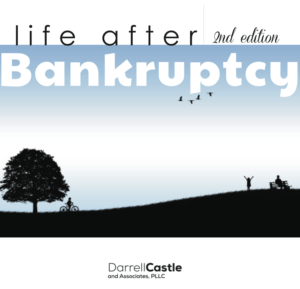 How Long Does the Chapter 7 Bankruptcy Process Take?
How Long Does the Chapter 7 Bankruptcy Process Take?
If you’re thinking about filing for Chapter 7 bankruptcy, you’re probably wondering how long the process will take from start to finish. While bankruptcy can be a complex process, the timeline for a typical Chapter 7 case is usually shorter than many people expect.
As a Memphis bankruptcy lawyer, I’ll walk you through what to expect and the key steps along the way.
Understanding the Chapter 7 Bankruptcy Timeline
For most Chapter 7 cases, the process takes about 4 to 6 months from the time you file to when you receive your discharge. However, this can vary drastically depending on your situation.
For example, how quickly does your attorney work on your behalf? How responsive are they to communication? And do they understand your goals and how quickly you want the case to go?
In addition, other factors might impact your case, including:
- How quickly you gather your paperwork
- Court-related backups and how quickly court staff can work, and
- Whether there are any complications with your case, and what kind.
So it’s best to understand the general timeline so you can discuss it with your attorney.
Here’s a breakdown of the main stages in a typical Chapter 7 bankruptcy process:
 Pre-Filing Preparation
Pre-Filing Preparation
Before filing, you’ll need to gather all your financial documents, like bank statements, tax returns, and information about your debts, income, and assets.
This can take some time, depending on how organized your paperwork is and how quickly you can collect the necessary documents. A good bankruptcy lawyer will help you as much as possible to know what you need and how to find it.
You’ll also need to complete a credit counseling course, which takes just a few hours and can be done online.
Filing Your Chapter 7 Bankruptcy Petition
Once all your paperwork is ready, your bankruptcy lawyer will help you file your petition with the bankruptcy court.
Filing the petition officially starts your case, and it triggers something called the “automatic stay.” This stay immediately stops most collection activities. That means creditors can no longer call you, send bills, or take other actions to collect debts while your case is in progress.
The Meeting of Creditors
A few weeks after you file, you’ll need to attend a meeting of creditors, also known as a “341 meeting.” This is a short, straightforward meeting with your bankruptcy trustee.
The trustee will ask you some basic questions to confirm the accuracy of your paperwork. Your lawyer will be there with you, and the meeting usually lasts about 10 minutes.
 Waiting Period for Creditor Claims
Waiting Period for Creditor Claims
After the 341 meeting, there’s a waiting period so creditors have the opportunity to challenge the discharge of any debts. For most straightforward cases, you won’t have to worry about this, but it’s something to be aware of.
If anything comes up during this required period, a good bankruptcy lawyer will make sure to communicate with you about it. But remember, you still have the automatic stay. No one is allowed to pursue you for your debts, even through the waiting period.
Receiving Your Discharge
In most cases, you’ll receive your discharge order from the court a few months after filing. This discharge legally frees you from most debts, meaning you’re no longer required to pay them back.
That’s the power of Chapter 7 bankruptcy: it gives you a fresh start and a chance to rebuild your financial life without the burden of overwhelming debt.
 Life After Bankruptcy
Life After Bankruptcy
After your Chapter 7 bankruptcy, you may have a lot of questions about its lingering effects:
- How will it affect your ability to get a house in the future?
- Will it impact your job or future job prospects?
- Can you get a car or other big purchases?
We’ve helped our clients through every single one of these questions, and we can help you, too. That’s why we’ve created a free report called Life After Bankruptcy.
As one of our most popular free resources, this report will guide you through the process and help you understand how Chapter 7 might impact you in the weeks, months, and years to come.
Fortunately, for almost all of these questions, the answer is that you’ll be far better off with bankruptcy than you were without it. It offers a fresh start, and that means new opportunities to build a better financial future than you had before.
Factors That Could Affect the Timeline
While most Chapter 7 cases follow this timeline, there are a few factors that can impact how long the process takes:
First, you may have an especially complicated financial situation. If you have a lot of assets or have debts that require extra work to include in a bankruptcy, your case could take longer. Our attorneys will always let you know if we see any potential issues up front.
You’ll also want to avoid any errors or missing paperwork. Fortunately, it’s our job to get the paperwork right – yet another reason you should always choose an experienced, trustworthy lawyer. And it’s just your job to be honest and help us collect the right information.
 A Bankruptcy Attorney Who Works With Your Timeline
A Bankruptcy Attorney Who Works With Your Timeline
Your Chapter 7 bankruptcy timeline depends so much on the team making it happen. If your attorney doesn’t move quickly on your behalf, ignores your phone calls, or creates other complications for you, it could take so much longer than you deserve.
That’s why you should always work with a qualified, respected bankruptcy attorney. Look for someone with a history of success and stellar reviews.
Our award-winning team has the reputation for compassionate and responsive care. We don’t just work hard for you – we work quickly. We know you don’t want to spend any more time in debt, and we want to give you a fresh start as soon as possible.
If you’re considering Chapter 7 bankruptcy, reach out to our experienced Memphis bankruptcy team. We offer a free consultation, where we can answer your questions and help you avoid unnecessary delays.
Contact us today online or call 901-327-2100. Let’s work together to get you the fresh start you deserve.

